# tax
12 posts in `tax` tag
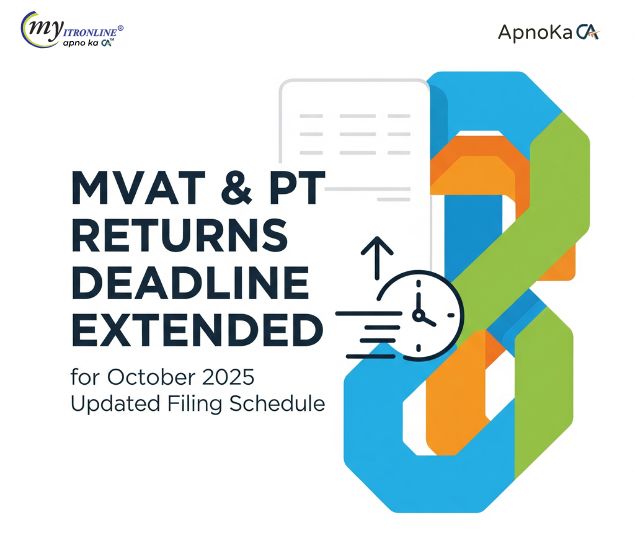
MVAT & PT Returns Deadline Extended for October 2025 Updated Filing Schedule
The Maharashtra government has extended the deadlines for filing MVAT and Professional Tax returns for October 2025. Payment due dates remain unchanged, and interest applies if taxes are paid late. Taxpayers now have additional time to file returns correctly and avoid late fees. This update helps businesses manage compliance efficiently and avoid penalties by following the revised dates.
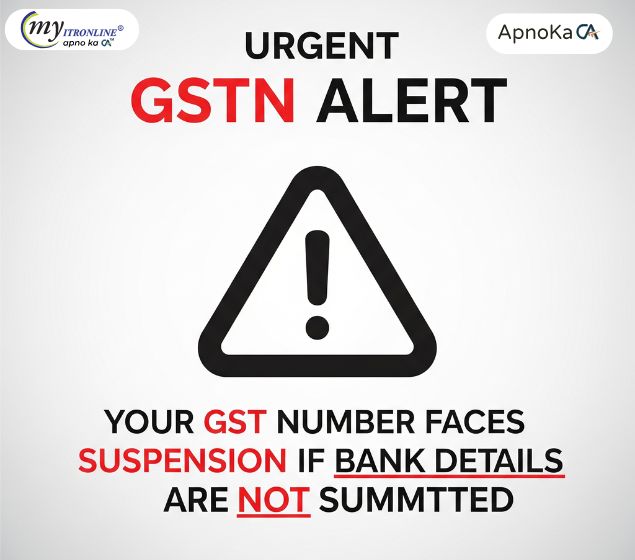
Urgent GSTN Alert: Your GST Number Faces Suspension if Bank Details Are Not Submitted
GSTN has issued a strict alert for registered taxpayers: furnish your bank account details on the GST portal within 30 days of registration, or before filing GSTR-1/IFF, whichever is earlier. Non-compliance can lead to suspension via FORM REG-31, blocked GSTR-1 filing, e-way bill generation restrictions, and possible cancellation of registration. To stay compliant, log in to the GST portal, upload your bank details, and ensure verification to keep your GST number active and avoid operational disruptions.
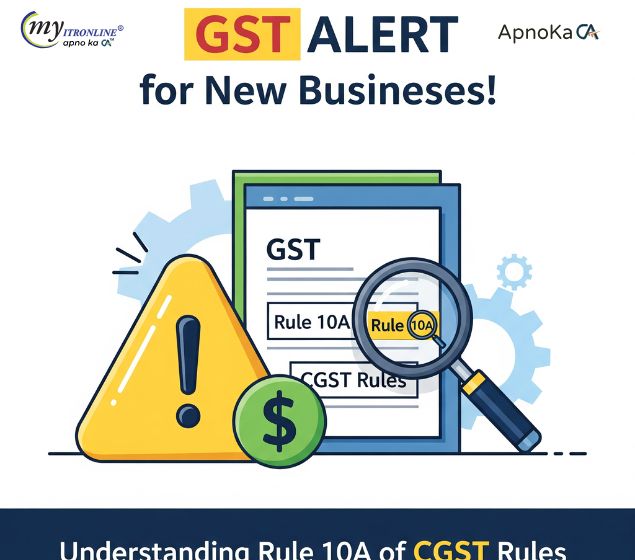
GST Alert for New Businesses! Understanding Rule 10A of CGST Rules
Rule 10A of the CGST Rules requires every new GST registrant to verify their bank account and upload the details on the GST portal within the prescribed timeline. This ensures that GST registration remains active, refunds are processed smoothly, and risks of suspension or cancellation are avoided. Non-compliance can lead to withheld refunds or suspended GSTIN. Uploading a cancelled cheque or bank statement immediately after GST approval is the simplest way to stay compliant.
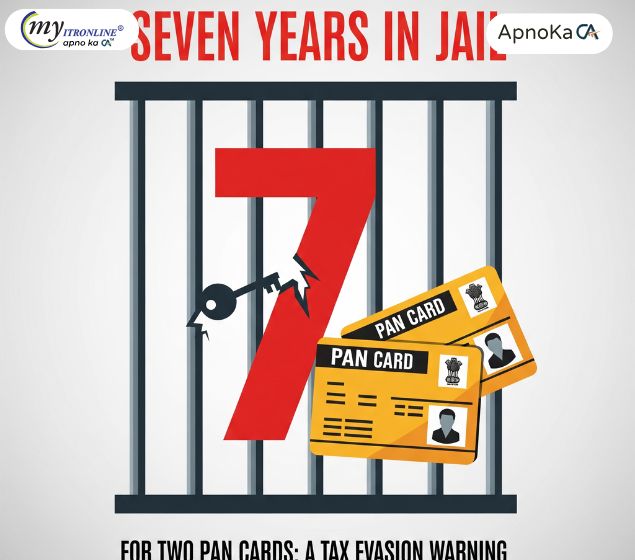
Seven Years in Jail for Two PAN Cards: A Tax Evasion Warning
A recent court judgment has made it clear that holding more than one PAN card is no longer just a minor issue with a 10,000 fine. In a high-profile case, two individuals were sentenced to seven years in jail for possessing duplicate PANs, one of which was forged. The ruling shows that when a second PAN is linked to fraud or forgery, it becomes a criminal offense under the IPC. Taxpayers with duplicate PANs must act quickly and surrender the extra card to avoid severe legal consequences.
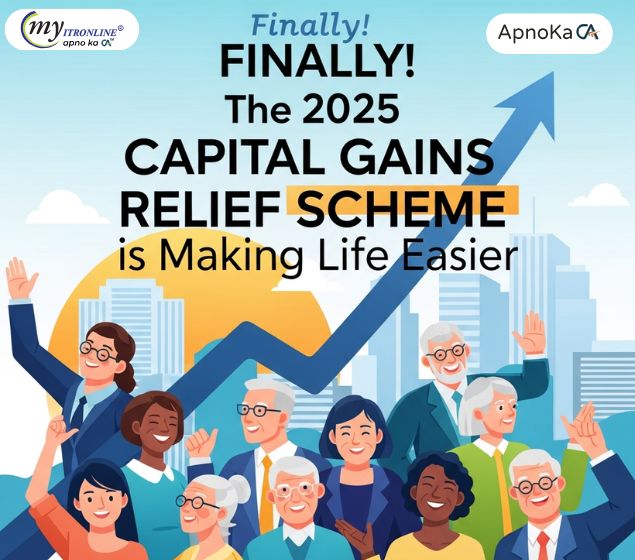
Finally! The 2025 Capital Gains Relief Scheme is Making Life Easier
The 2025 Amendment Scheme has modernised the Capital Gains Account Scheme (CGAS) by making it digital-first and easier to use. Taxpayers can now deposit capital gains online through Net Banking, UPI, RTGS, or NEFT, with the deposit date clearly defined. Electronic statements replace passbooks, more banks are authorised to manage CGAS accounts, and simpler ITR forms are on the way. With broader exemptions like Section 54GA included, the scheme reduces stress and makes compliance smoother for property sellers, NRIs, and businesses.
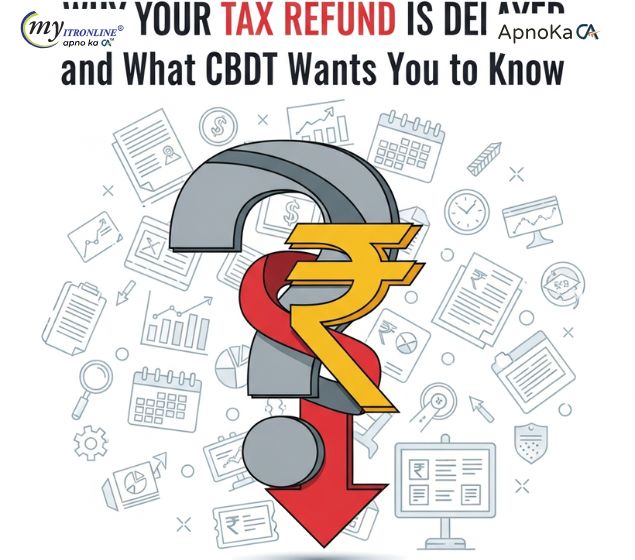
Why Your Tax Refund Is Delayed and What CBDT Wants You to Know
Many taxpayers are waiting for refunds, especially where the refund is large. The Central Board of Direct Taxes (CBDT) is closely checking high-value and flagged returns to stop fake claims and tax cheating. This guide explains the main reasons for delays, which cases get compulsory scrutiny, and simple steps you can take now to clear your refund faster.
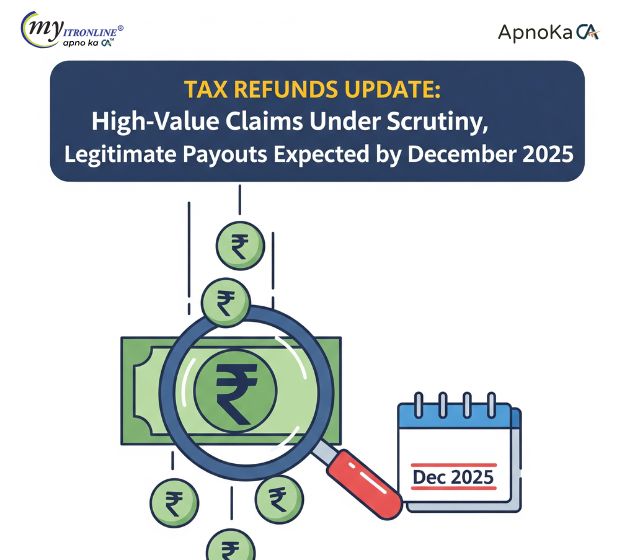
Tax Refunds Update: High-Value Claims Under Scrutiny, Legitimate Payouts Expected by December 2025
The Income-Tax Department is closely reviewing high-value refund claims flagged for potential discrepancies. While smaller refunds are already being processed, CBDT Chairman Ravi Agrawal has assured taxpayers that legitimate high-value payouts will be cleared by December 2025. Refund claims worth ₹2.42 lakh crore have been filed till November 10, showing an 18% drop from last year. The department has also increased appeal disposals by 40% and remains confident of meeting its ₹25.20 lakh crore direct tax collection target for FY26, supported by 6.99% growth. Leveraging AI-powered tools, the CBDT is enhancing compliance, monitoring taxpayer behavior, and identifying potential evasion
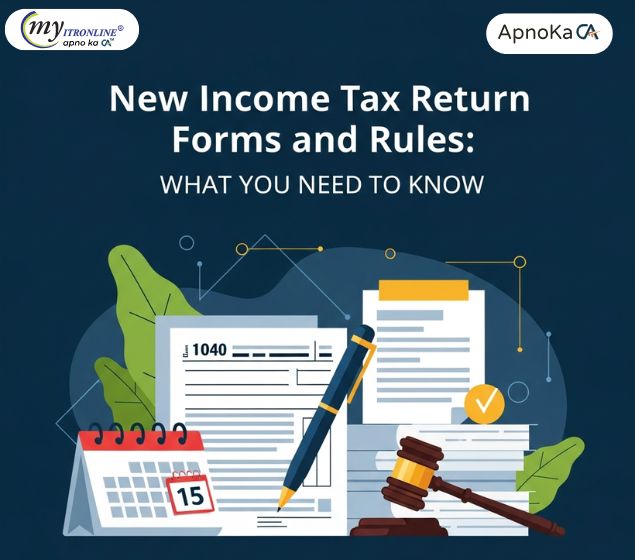
New Income Tax Return Forms and Rules: What You Need to Know
The government is set to introduce simplified income tax return forms under the Income Tax Act, 2025 by January 2026, replacing the long-standing Income Tax Act, 1961. These new forms aim to make tax filing easier, reduce compliance burdens, and improve transparency. Refunds are being processed, with larger claims expected by December 2025. The CBDT is confident of meeting its ambitious ₹25.20 lakh crore direct tax collection target for FY26, supported by strong growth. Taxpayers should prepare for the new system, which takes effect from April 1, 2026.

Fueling Indian R&D: CBDT’s Approval under Section 35(1)(iia) | 100% Tax Deduction for Innovation
The CBDT has issued Notification No. 4/2025 under Section 35(1)(iia) of the Income Tax Act, granting approval to a company for scientific research and development. Contributions made to the approved entity qualify for a 100% tax deduction, encouraging businesses to support innovation while reducing their tax burden. This move strengthens India’s R&D ecosystem and promotes industry-science collaboration.
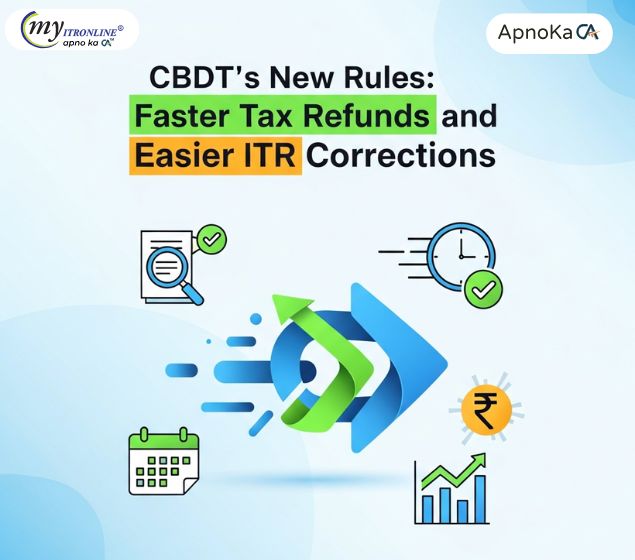
CBDT’s New Rules: Faster Tax Refunds and Easier ITR Corrections
The CBDT has empowered the CPC Bengaluru with concurrent jurisdiction under Section 154 to rectify obvious errors in ITRs like missed TDS/TCS credits, relief miscalculations, and interest under Section 244A—leading to faster refunds, reduced compliance burden, and greater transparency. Effective from October 27, 2025 (Notification No. 155/2025), this centralized approach streamlines rectifications and allows demand notices under Section 156 where needed.
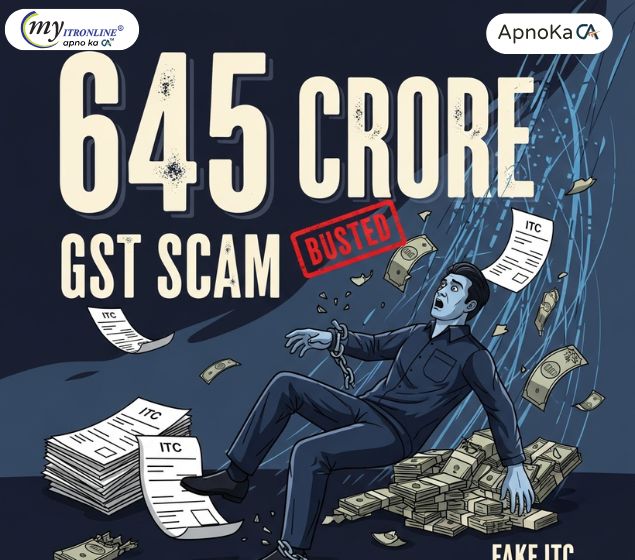
645 Crore GST Scam Busted: The Fall of the Fake ITC Mastermind
The Directorate General of GST Intelligence (DGGI) has uncovered a massive 645 crore fake Input Tax Credit scam. Mastermind Mukesh Sharma created 229 dummy companies to issue fraudulent invoices without actual supply. His arrest under the CGST Act highlights the growing crackdown on GST fraud and its implications for honest businesses.
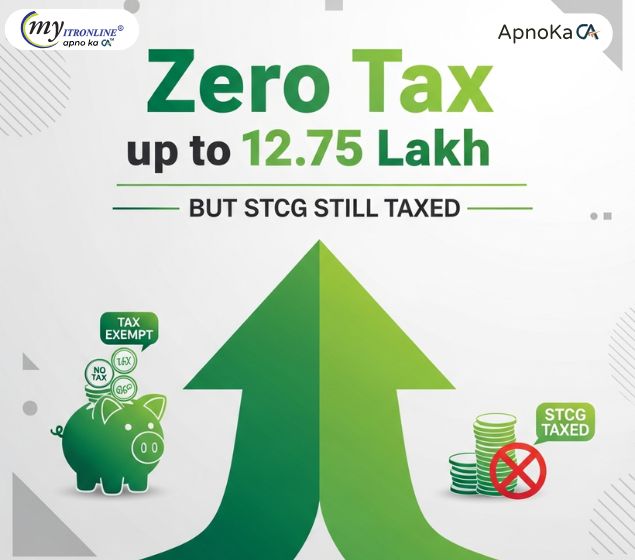
Zero Tax up to 12.75 Lakh But STCG Still Taxed
The Union Budget 2025 has raised the Section 87A rebate, exempting income up to ₹12.75 lakh from tax. However, Short-Term Capital Gains (STCG) on equity shares and mutual funds remain taxable at a flat 15%. While salaried taxpayers enjoy zero tax relief, investors and traders must pay STCG separately without rebate benefits.
